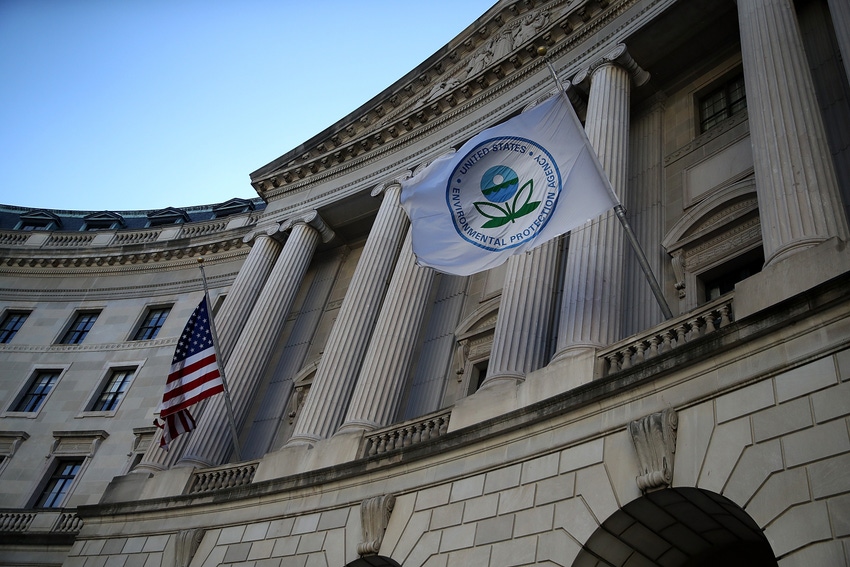Biofuels industry stakeholders say action creates continued uncertainty in what levels of blending required.

The Environmental Protection Agency announced further extensions for oil refiners to comply with past-due Renewable Fuel Standard obligations from 2019 and 2020, which the agency previously extended in April. EPA still has not issued 2021 and 2022 RFS rules or the 2023 volumes or announced decisions on pending small refinery exemptions, bringing ongoing uncertainty to the biofuels sector.
Earlier this year, EPA extended the compliance deadline for small refineries to demonstrate compliance with their 2019 Renewable Volume Obligations or RVOs and for all obligated parties to demonstrate compliance with their 2020 RVOs.
EPA is proposing to change how future compliance deadlines are determined. The 2019 RVO compliance deadline for small refineries is currently set for November 30, 2021, and the 2020 RVO compliance deadline for all obligated parties is currently set for January 31, 2022, but both deadlines were not likely to be met.
In its latest announcement, EPA says the proposed extensions (both for 2019-2021 and for 2022+) will help ensure that obligated parties are positioned to fully comply with their RFS obligations by ensuring that each year’s compliance deadline falls after the standards for the subsequent compliance year are known.
“It’s long past time for refiners to demonstrate compliance with their 2019 and 2020 renewable volume obligations. There’s no good reason for EPA to kick the can down the road again, which only adds uncertainty and instability to the marketplace,” says Renewable Fuels Association President and CEO Geoff Cooper.
“Refiners and the EPA need to respect and meet deadlines, and we likewise call on EPA to immediately publish the long-overdue renewable volume obligations for 2021 and 2022,” Cooper adds.
Emily Skor, CEO at Growth Energy, also called on EPA to release 2021 and 2022 RVOs immediately. “Further delaying compliance deadlines for previous RVO years does nothing but contribute to ongoing uncertainty in the marketplace,” Skor says. “Sadly, even as our country faces rising gas prices, the EPA and the Biden Administration continue to give in to the loud voices of the oil industry without considering their detrimental impact on rural America.”
Kurt Kovarik, National Biodiesel Board’s vice president of federal affairs, states the Biden administration and EPA are sending the wrong signals on fuel availability and gas prices.
“The uncertainty they are creating for the RFS will undermine biodiesel and renewable diesel producers, blow up demand for cleaner fuels, and derail the nation's progress toward carbon reductions,” Kovarik says. “This is simply a gift to refiners who have ignored the RFS obligations for more than a year and a half and are demanding the administration bail them out. EPA needs to finalize RFS rules now."
Many stakeholders expressed frustration with the Biden administration’s lack of action promised on the campaign trail in upholding the congressional intent of the RFS, as well as comments made by EPA Administrator Michael Regan during his nomination hearing.
“During his confirmation hearing, the EPA administrator said he wanted to get the RFS back on track and reintroduce transparency into the program. To do so, EPA must issue strong 2021 and 2022 RVOs and ensure that the 15-billion-gallon biofuel blending requirements are met. It is past time for EPA to act,” Skor says.
“We had hoped things would be different under this administration, but EPA continues to miss its deadlines and create confusion in the marketplace,” Cooper says. “The rural economy needs and deserves the market certainty and predictability the Renewable Fuel Standard was intended to provide.”
Brooke Coleman, executive director of the Advanced Biofuels Business Council, also called the action politically influenced.
“The Biden EPA is saying that oil companies are free to ignore clean energy laws until it's politically convenient. This license to delay is a lucrative handout to the same refiners who played politics with the RFS under President Trump while pocketing millions in regulatory favors,” Coleman says. “It's past time for the EPA to enforce the law, as written, and give producers, farmers and other responsible stakeholders the certainty they need to invest in homegrown energy, hold down prices at the pump, and reduce emissions.”
About the Author(s)
You May Also Like


.png?width=300&auto=webp&quality=80&disable=upscale)


